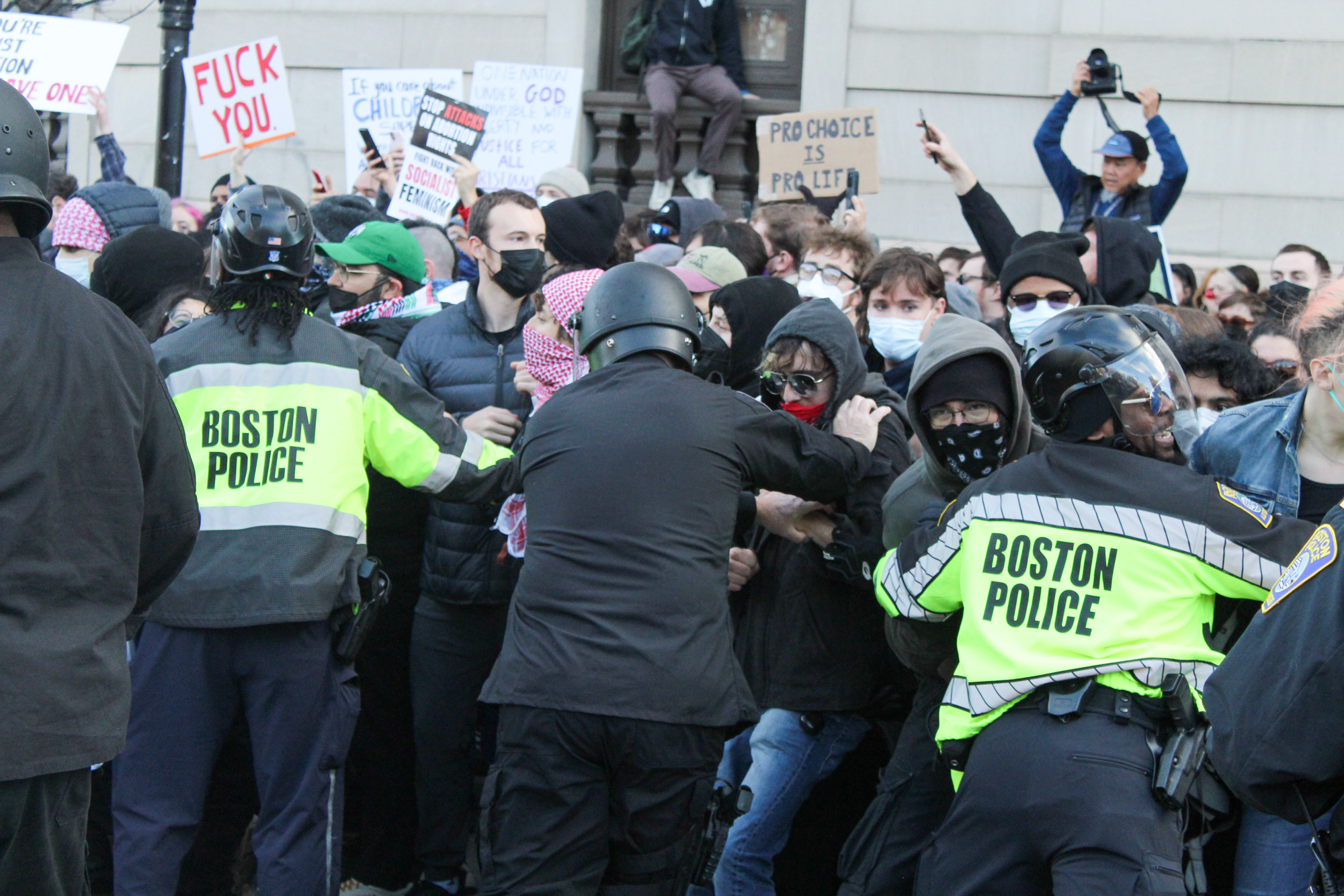As she walked into Planned Parenthood on Commonwealth Avenue at the start of her sophomore year of college, a 2022 Boston University alum said she felt a sense of relief.
“I knew that it would be over soon and that I could put the situation behind me, and I was lucky,” she said.

She realized she was pregnant right before she left for Boston to start the school year. As a student with dreams of a Ph.D. and career, she said she was certain she wanted to have an abortion after she found out. She said she knew what carrying on with the pregnancy could mean for a young woman like her and her future.
“I didn’t even imagine a world where I would do anything else,” she said.
Massachusetts has long been a safe haven for women’s reproductive rights. However, after the 2024 election, President-elect Donald Trump reignited the abortion debate in Massachusetts that seemed settled for many years.
“Donald Trump and JD Vance pose an existential threat to reproductive health care access nationwide, including here in Massachusetts,” said Taylor St. Germain, deputy director of Reproductive Equity Now, a nonprofit organization that works to advance reproductive healthcare in New England states through education and advocacy.
The federal actions Trump may take could stop healthcare organizations like Reproductive Equity Now from providing reproductive care to people in states where it is banned, St. Germain said.
St. Germain said her organization fears the reinforcement of the Comstock Act, a law enacted in 1873 that prohibits receiving or sending abortion-related materials in the mail. It was no longer enforced after Roe v. Wade, a 1973 Supreme Court decision that recognized women’s constitutional right to abortions.
“The Comstock Act could have horrific ramifications for abortion care access here in protected states like [Massachusetts], simply by the use of the federal mail system,” St. Germain said.
Abortion is legal in Massachusetts up to 24 weeks of pregnancy, and after 24 weeks if the carrier is facing health issues or in the case of fetal death.
Trump’s election should have minimal effect on Massachuetts’s abortion laws if he “lives up to his promise” that the issue will not become a federal law, said Jack Beermann, professor of law and political science at BU.
“You never know with Trump, because he’s very difficult to predict,” he said.
During his first term, a Trump-appointed Supreme Court overturned Roe v. Wade.
At the beginning of his candidacy this year, Trump said he supported a nationwide ban of abortions, but recently said he believes abortion policies should be a state decision.
Reproductive Equity Now is working to combat potential threats to its cause, such as working with the state to stockpile necessary abortion medications.
Mifepristone is a drug that acts as a blocker for progesterone, a hormone necessary for pregnancy viability.
Last year, Gov. Maura Healey took a precautionary measure and stockpiled 15,000 doses of mifepristone so the drug remains protected against any future attempts to restrict access to it in Massachusetts.
“That will be a really big saving grace, to be able to get that out to providers,” St. Germain said.
The Department of Public Health provided $1 million to reproductive care providers to purchase their own doses of the medication, according to a press release from Mass. Gov.
The Massachusetts Legislature passed the Shield Law in 2022, which protects abortion providers, patients, pharmacists and anyone assisting others in accessing abortion care from professional licensure penalties and out-of-state investigations or legal actions.
Meanwhile, pro-life organizations are optimistic about what Trump’s reelection could mean for their goals.
Myrna Maloney Flynn, president and CEO of Massachusetts Citizens for Life, the Massachusetts affiliate of the National Right to Life Committee, said her organization aims to use education and legislation to instill the right to life from conception through death.
“We’re very pleased that President Trump was reelected,” Flynn said. “We know we have work to do, because, again, he’s not a perfect candidate … in a perfect world, we would welcome a candidate who would vow to make abortion unthinkable.”
On Nov. 16, the annual National Men’s March to Abolish Abortion and Rally for Personhood took place as protesters marched from Allston’s Planned Parenthood to Boston Common and were met with hundreds of counter protesters along the way.
Having a president who supports pro-life ideals allows people to become more comfortable publicly taking that stance, Flynn said.
After Trump’s inauguration, Flynn said she is expecting his administration to enforce policies that make what she calls “choosing life” an easier option. She said she expects to see more “family friendly legislation” like affordable childcare, she said.
“If we expect women to choose life, we’ve got to give them the adequate support that they need,” Flynn said. “Not only for the short term, not only for the pregnancy, but after that baby is born and for the long term.”
One way Trump could change Massachusetts laws is if he creates a Supreme Court that is dominated by anti-abortion voices, Beermann said. The Court could deem abortion unconstitutional, a law that Massachusetts would not be able to violate.
An anti-abortion law could not solely be created by the President, Beermann said. Legislation has to pass through Congress before it can be enacted, and any federal anti-abortion laws would be unlikely to pass even in a Republican Congress.
“There’s a lot at stake,” the 2022 alum said. “I think any woman losing the right to choose what to do with her body is like a horrible risk and a horrible thing to take away from someone, and I think it’s going to lead to horrible consequences for women.”























































































































